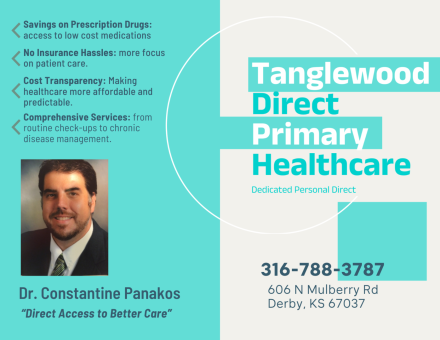Direct Primary Care (DPC) clinics offer several benefits that make them an attractive option for many patients. Here are some of the key advantages:
1. Affordable and Transparent Pricing
Flat Monthly Fee: Patients pay a fixed monthly fee, which typically covers most primary care services. This predictable
cost structure can be more affordable, especially for those with high-deductible insurance plans.
No Hidden Costs: The pricing is straightforward, with no unexpected bills for basic services. This transparency makes
healthcare costs more manageable.
2. Personalized Care
DPC patients often enjoy more in-depth visits with their doctors, allowing for more personalized care.
Stronger Patient-Doctor Relationship: The emphasis on a smaller patient panel allows doctors to spend more time with each
patient, fostering a stronger relationship and better understanding of individual health needs.
3. Better Access to Care
With fewer patients per doctor, DPC clinics often offer more timely appointments.
Lower Wait Times: Patients typically experience little to no wait times when visiting the clinic, making healthcare more
convenient.
4. Comprehensive Primary Care Services
Wide Range of Services Covered: Most DPC memberships include routine check-ups, preventive care, chronic disease
management, and some diagnostic services, all under the same fee.
Medication and Lab Savings: Many DPC clinics provide medications at wholesale prices and offer discounted lab tests, making
it more affordable for patients to manage their health.
5. Less Bureaucracy
No Insurance Hassles: Since DPC clinics do not bill insurance for their services, there’s less paperwork and fewer
administrative barriers, allowing doctors to focus more on patient care.
Direct Care Focus: The absence of insurance billing means that doctors aren’t constrained by insurance company rules or
requirements, giving them more freedom to provide care based on what’s best for the patient.
6. Preventive and Holistic Approach
Focus on Preventive Care: With more time and personalized attention, DPC doctors can emphasize preventive care, helping
patients avoid more serious health issues in the future.
Whole-Person Care: DPC models often support a more holistic approach to health, considering not just physical but also
mental and emotional well-being.
7. Improved Health Outcomes
Continuity of Care: With better access to the same physician over time, DPC patients often experience better continuity of
care, which can lead to improved health outcomes.
Proactive Health Management: The DPC model encourages proactive health management, leading to early detection and treatment
of conditions.
Overall, DPC clinics offer a more patient-centered approach to healthcare, emphasizing affordability, accessibility, and
quality care without the complexities of traditional insurance-based models.
Can I use my Insurance if I a member of your Direct Primary Care clinic ?
In a direct family practice clinic operating under a Direct Primary Care (DPC) model, patients typically do not use their insurance for
services provided by the clinic. Instead, they pay a monthly membership fee that covers most primary care services, including office visits, routine check-ups, and sometimes discounts on medications
and lab tests.
However, insurance can still be used for services not covered by the DPC membership, such as specialist visits, hospitalizations, or other
major medical expenses. Patients often carry a high-deductible health plan or a catastrophic insurance plan to cover those situations.



